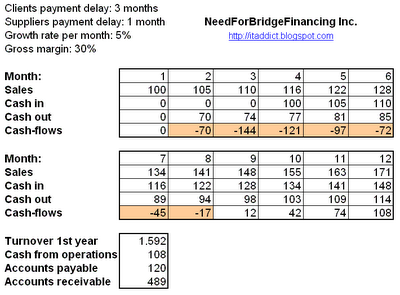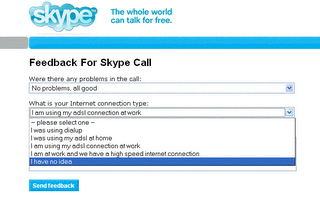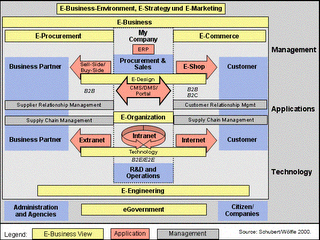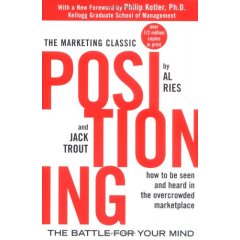Moving from Blogger to Wordpress: update your RSS feed!
There is a word for all this mess, "e-Business": use the best technologies, and make these used and understood by your ecosystem (suppliers, employees, etc.) to serve you customer best.
I felt that I had no right writing about something I actually wasn´t applying nor planning to implement. This blog is an enterprise in its own: it requires dedication, time, patience, and the drive to write, or at least try and do my best to write interesting "IT Addict" stuff. Furthermore, I have a fast-growing portfolio of very bright customers: you! Through gathering feedbacks, I realized you were overall pretty satisfied with the content & design, but that you wanted me to switch, for reasons I still don´t understand well, from Blogger - a tool you consider being "blogging for dummies", to a more "professional" platform like TypePad or WordPress. I´ve chosen the latter.
My goal being to serve better my community, of which you belong to as long as you read me and leave comments, I hope I found a good way to illustrate how a technology upgrade (from the Blogger platform to the WordPress software) may enhance customer satisfaction.
Now that the message has come accross, here are a few housekeeping remarks:
- Do not leave comments on http://itaddict.blogspot.com anymore, go to http://jeremyfain.wordpress.com instead (update your bookmarks); you will anyways be able to find my blog on http://www.jeremyfain.net.
- I made a slight blog title change, from "IT Addict, high-tech made easy" to "Tech IT Easy", under the name of a shop bearing such a name I saw in Rome;
- Update my RSS feed on your RSS reader from itaddict.blogspot.com/rss.xml to http://jeremyfain.wordpress.com/feed/ for posts and http://jeremyfain.wordpress.com/comments/feed/ for comments;
- I´m in middle of the migration process (making sure all the comments are there, pictures right-sized, no broken links, browsing features, etc.) and I should be done by the August 30th 2006. Consequently, I should be most grateful if you do excuse any inconvenience likely to happen until then.
- I´d like to thank: Blogger for providing me with a very simple tool that helped me start blogging; WordPress for making its superb software platform available to all for free (I added many interesting new features such as the last comments published); and you for your time and faithfullness in my writings & thoughts. I hope this is only the beginning of our collaborative sharings on the utmostly interesting topic of Information Technology.
See you right now on Tech IT Easy.


















